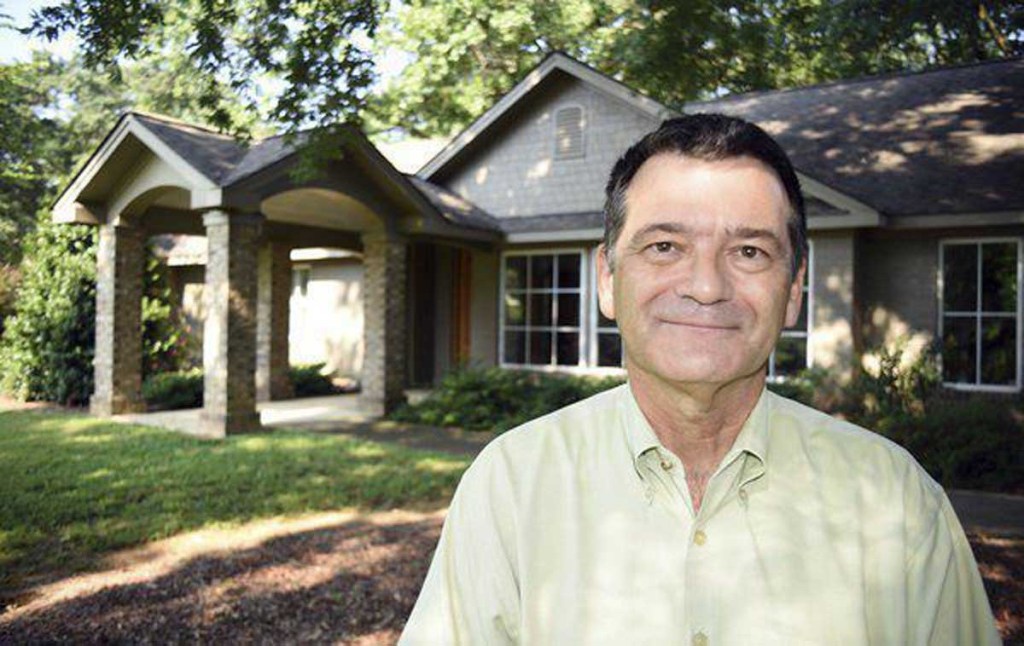More than 1,500 Whitfield County property owners have appealed their property assessments
Published 11:53 am Monday, July 24, 2017

- John Didier at his home in Dalton. Didier says the assessed land values of similar properties in his neighborhood and comparable neighborhoods are wildly different.
DALTON, Ga. — Dalton resident John Didier discovered something he found perplexing and concerning when he began comparing the assessed value of the land his home sits on on Ella Lane with the assessed value of the land of other properties in the Dickson Acres neighborhood.
“Our property is 2.5 acres, and we are valued at $142,000,” he said. “But we found other properties of about the same size that are valued at $40,000 or $42,000.”
He found the same pattern when looking at nearby neighborhoods that he considered comparable if not nicer than his.
“There are lots assessed at $38,000 to $42,000 and they are smaller to approximately our size,” he said. “And there were two fabulous lots, almost two acres larger than ours, and the land value is assessed at about a third of ours.”
Didier has appealed the Whitfield County Tax Assessor’s assessment of his property.
“There are basically two types of appeals, value and uniformity. Uniformity is making sure that you are treated the same as the owners of similar properties,” he said. “We have challenged it on uniformity.”
The Board of Assessors is scheduled to meet Tuesday at 8:30 a.m. in the Whitfield County courthouse and Didier is scheduled to present the board members with his research.
“I’m going to suggest to them that this data raises enough concern that they should delay the approval of the tax digest until they have had time to study the situation,” he said.
Monday was the deadline for Whitfield County property owners to appeal their assessments, and Whitfield County Chief Appraiser Ashley O’Donald says 1,582 property owners filed to appeal their assessments.
“That’s around 3.5 or 4 percent,” he said. “That’s not unusual in a big reassessment year.”
Georgia law requires counties to review annually the values of property on the tax digest compared to sales data. When assessed values seem to be out of line with sales prices, they must be updated and more properties are reassessed than in other years.
O’Donald says the first step in the appeals process is for him and the staff of the assessors office to review the appeal.
“We try to get as much information as we can from the owner to see if there are any factual errors,” he said. “If we discover something that does cause us to change our assessment, we do an amended assessment, and the property owner will have 30 days to appeal that second assessment.”
If the staff makes no changes, the Board of Equalization will hold a hearing on the appeal. That board, which is appointed by the Whitfield County grand jury, has already started hearing appeals.
“They will meet several times a week until they have worked through the appeals,” O’Donald said. “The taxpayer and the (assessors) staff will present information. The board will ask questions. Then, they will make a decision on the value.”
O’Donald says Board of Equalization members have to be residents of and property owners in Whitfield County. After they are appointed, they have to undergo training and certification by the Georgia Department of Revenue.
According to information provided by the clerk of Superior Court’s office, the Board of Equalization consists of Denny Donnegan, William O’Hearon and Glenda Whisenant, with alternates John Heard and Eddie Hughes.
O’Donald says it will take the Board of Equalization “several months” to work through all of the appeals.
“There will be taxpayers who won’t be able to make their initial appointments and will have to reschedule, so they will have to allow for that,” he said.
O’Donald said the appeals process will not interrupt the finalization of the tax digest.
He says that as long as the share of assessments that are challenged is under 8 percent and the difference in total disputed value — the value assessed by the assessors office and the value claimed by property owners — is less than 8 percent the tax digest can be finalized even if appeals are still underway.
He says he expects to deliver the digest to state officials by early September.
So what happens to property owners who win their appeal after the digest is finalized?
“We will make an adjustment and forward that to the tax commissioner’s office where they will receive an amended tax bill,” O’Donald said. “If they have already paid their taxes, they will receive a refund.”



